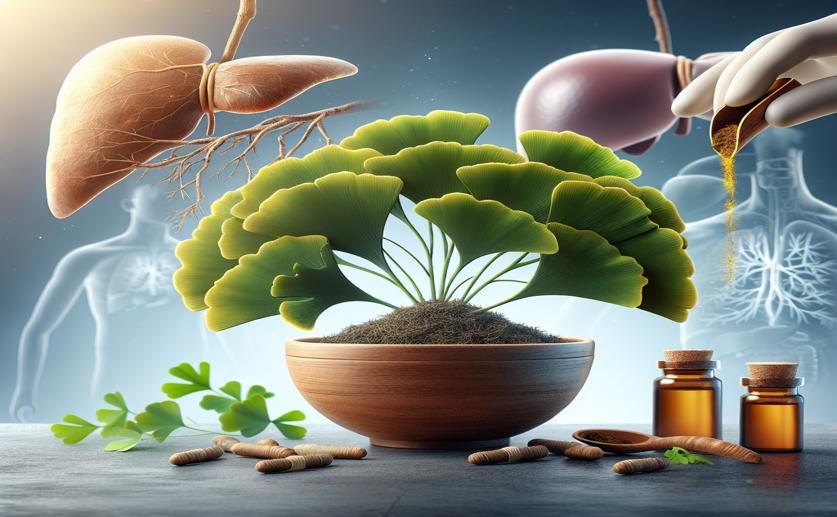
Ginkgo Extract Helps Heal Acute Liver Damage via Key Signaling Pathway
Jenn Hoskins
1st March, 2024

Image Source: Natural Science News, 2024
Key Findings
- In a Beihua University study, Ginkgo biloba extract (GBE) reduced liver damage markers in cells exposed to a toxin
- GBE lowered inflammation and boosted the liver's antioxidant defenses
- The extract activated a cell survival pathway, potentially offering a new treatment for acute liver injury
References
Main Study
1) Ginkgo biloba extract alleviates CCl4-induced acute liver injury by regulating PI3K/AKT signaling pathway.
Published 29th February, 2024
https://doi.org/10.1016/j.heliyon.2024.e26093
Related Studies
2) Role of the PI3K/Akt signaling pathway in liver ischemia reperfusion injury: a narrative review.
3) Isovalerylspiramycin I suppresses non-small cell lung carcinoma growth through ROS-mediated inhibition of PI3K/AKT signaling pathway.
4) Taxifolin, a novel food, attenuates acute alcohol-induced liver injury in mice through regulating the NF-κB-mediated inflammation and PI3K/Akt signalling pathways.



 19th January, 2024 | Greg Howard
19th January, 2024 | Greg Howard